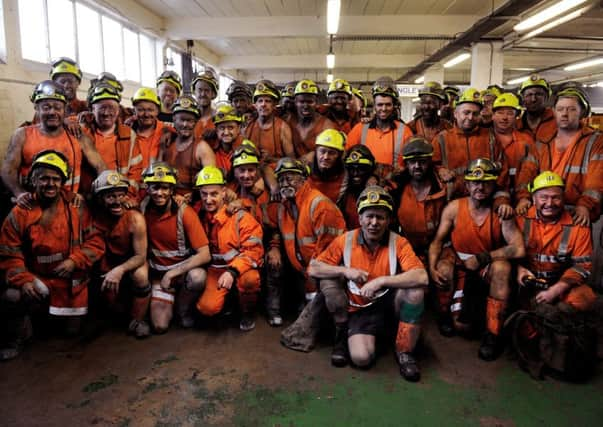Lump in throat in Yorkshire as Britain runs for a day without coal


As the clock strikes midnight, the country is expected to have completed its first full day fuelled only by greener alternatives.
The last coal-free day was in 1882, before the opening of the world’s first centralised public coal-fired generator at Holborn Viaduct in London.
Advertisement
Hide AdAdvertisement
Hide AdThe National Grid’s electricity control room tweeted: “It looks likely that today will be the first ever working day in Britain without coal since the industrial revolution.”
The electricity grid has been coal-free several times since last spring, placing its reliance instead on gas, wind and solar energy. The longest continuous period until yesterday had been 19 hours, on a weekend last May, and again on Thursday.
But in Yorkshire, once the engine room for the nation’s coal supply, the milestone evoked mixed feelings.
Three decades ago, the county had 56 collieries. The last two, Kellingley, near Pontefract, and Hatfield, in Doncaster, closed in 2015. The coal-fired Ferrybridge C power station, in Kellingley’s shadow, followed a few months later.
Advertisement
Hide AdAdvertisement
Hide AdChris Kitchen, general secretary of the National Union of Mineworkers, said: “Congratulations to them - they’ve managed to run for 24 hours. But what happens when there’s an emergency?
“They will end up paying ten times more than necessary because they’re desperate, and most of that will come from diesel.
“Someone will have to foot the bill and it will be either the government or the consumer.”
Mr Kitchen, who worked underground for 25 years at Kellingley and Wheldale, near Castleford, told The Yorkshire Post: “It’s not a long-term energy policy. It’s just a patch-up job.”
Advertisement
Hide AdAdvertisement
Hide AdCoal has seen significant declines in recent years, accounting for just nine per cent of electricity generation in 2016, down from around 23 per cent the year before, as the remaining coal plants switched to burning wood pellets and other biomass.
The government has pledged to phase out coal, the most polluting fossil fuel, from the system by 2025 as part of efforts to cut carbon emissions in the UK.
But Mr Kitchen said: “The production of coal is not harmful to the environment - it’s how you burn it.”
The environmental campaign group, Greenpeace UK, called for government action to accelerate the green roll-out. Spokesman Hannah Martin said: “The first day without coal since the Industrial Revolution marks a watershed. A decade ago, a day without coal would have been unimaginable, and in 10 years’ time our energy system will have radically transformed again.
Advertisement
Hide AdAdvertisement
Hide Ad“It is a clear message to any new government that they should prioritise making the UK a world leader in clean, green technology.
“They will need to get on with the coal phase-out plan and recognise the economic potential of renewable energy and energy efficiency.
“We can meet the UK’s needs for skilled jobs and fair bills, whilst also meeting our climate targets.”